
Fiancée Vs Fiancé Your Guide to Understanding These Terms
Using "Fiance" For Both Genders. One common mistake is using "fiance" for both male and female partners. However, "fiance" is specifically used for a male partner who is engaged to be married. If the partner is female, the correct term is "fiancee.". Using "fiance" for a female partner can be seen as disrespectful or even.

Fiancé vs. Fiancée. What’s the Difference?
(Grammar + Examples) Is it fiance or fianceé? What is the correct way to spell the upcoming marriage of a womanly partner? Learn the key differences and correct spelling in this short American English guide. Which is the correct usage? Fiance vs fianceè

Fiance vs. fiancee Common grammar mistakes, Grammar mistakes, Grammar
A man engaged to be married Like the Merriam-Webster Dictionary, Dictionary.com defines ' fiance ' as a noun that means: An engaged man However, the Oxford Dictionary defines ' fiance ' as a noun that means: Someone betrothed or engaged to be married Synonyms and Similar Words to 'Fiance'

Fiancée or Fiancé How to Use Each Properly INK Blog
The French nouns fiancé and fiancée both describe somebody who is engaged to be married, but the word fiancée is exclusively used for women. Fiancé is traditionally used for men, but the word can also represent engaged women or non-binary partners. Your writing, at its best
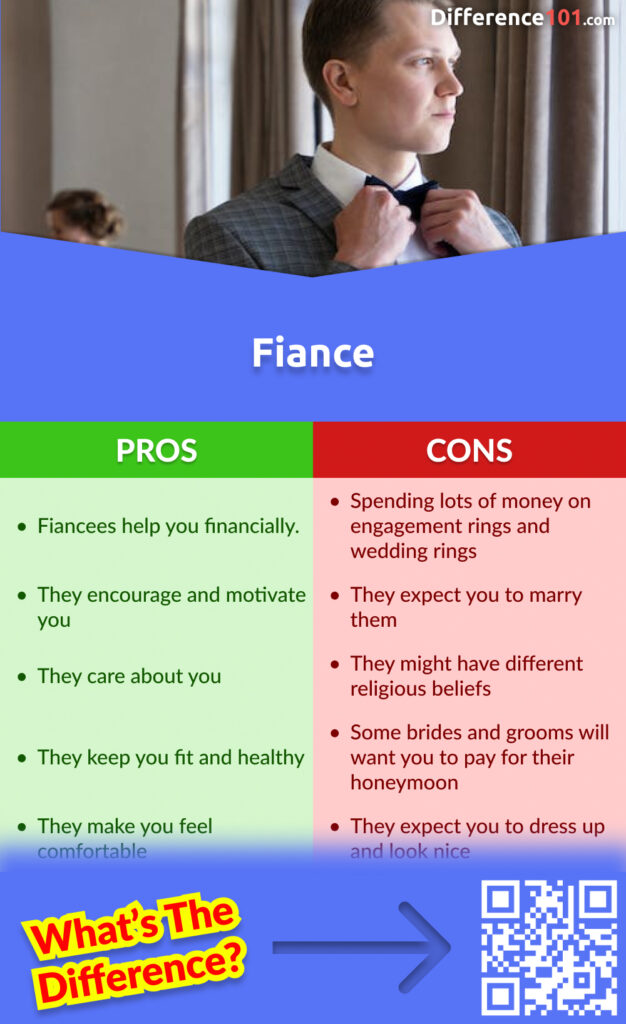
Fiance Pros & Cons
A fiancee is a woman who is engaged to be married. The term comes from the French word "fiancée," which means "betrothed." It is pronounced "fee-ahn-say." It is essential to use the correct term when referring to someone's partner as it can cause confusion if used incorrectly. The terms fiance and fiancee are not interchangeable.

FIANCEE or FIANCE How to Use Fiance vs Fiancee Correctly? Confused Words
An engaged woman, someone who has an agreement to be married, is called a fiancee. Here's an example of fiancee in a sentence. At the engagement party, John introduced his fiancee, Jane, to his extended family. The origins of the word fiancee are exactly the same as fiance.

FIANCÉE Or FIANCÉ Useful Difference Between Fiancée Vs Fiancé 7 E S L
Fiancée is a woman who's engaged and fiancé refers to an engaged man. So if one were to stick to the traditional use of the words, anyone who identifies as a man and is engaged is someone's fiancé, and anyone who identifies as a woman is someone's fiancée.
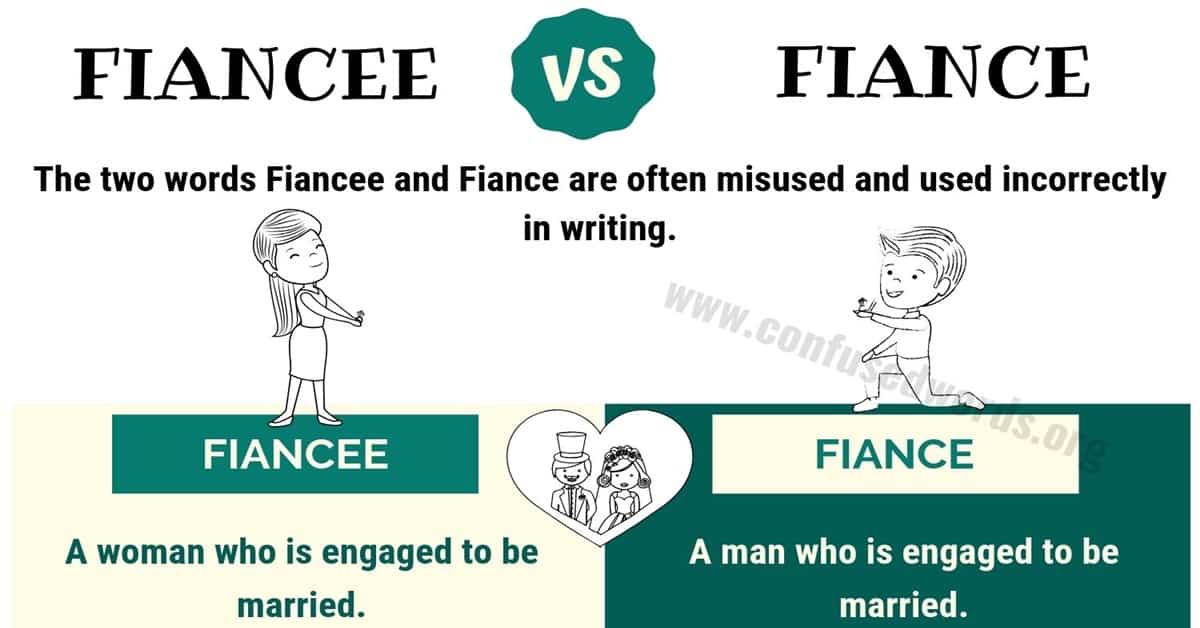
FIANCEE or FIANCE How to Use Fiance vs Fiancee Correctly? Confused Words
August 17, 2022 If you've ever wondered whether it was spelled fiancé or fiancée, well, they're both correct. And they're both correct because they are actually different terms. English borrowed them from variants of the French verb fiancer ( meaning "to get engaged") in the mid-19th century.
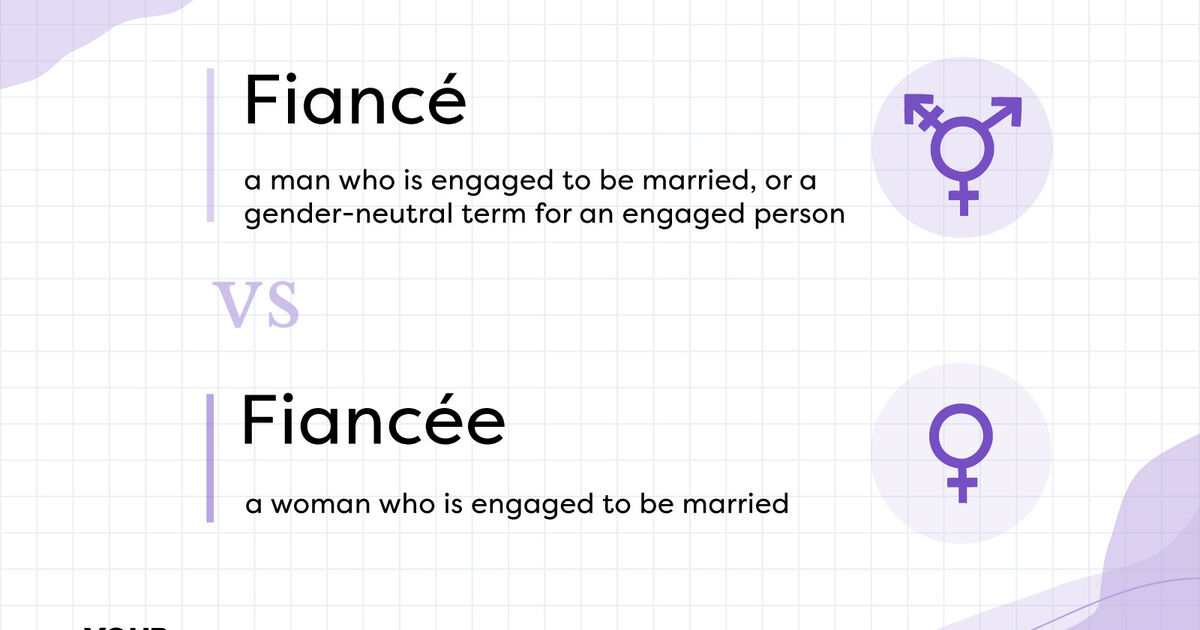
Difference Between Fiancé and Fiancée Differences Explained
Fiancée. Masculine word denoting a soon-to-be-married man. Feminine word referring to a future bride during her engagement period. Both the term "male" and "fiancé" have just one "e" in them. Both "female" and "fiancée" have two "e"-s in them. The fiancé will become the husband after marriage. The fiancée will.
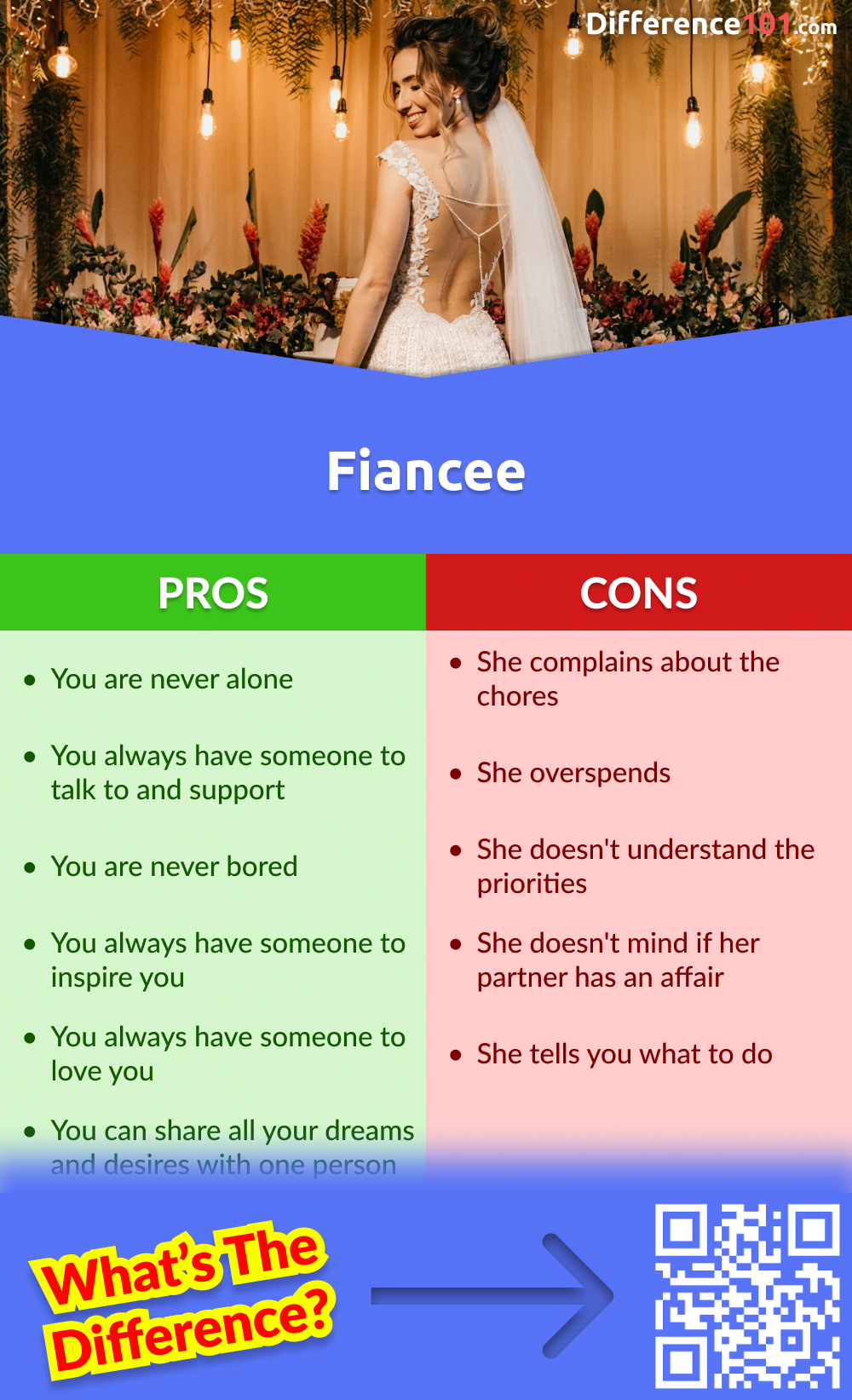
Fiance vs. Fiancee Key Differences, Pros & Cons, Similarities
fiancé - a man who is engaged to be married fiancée - a woman who is engaged to be married Fiancé and fiancée come from French, which assigns masculine and feminine forms to its nouns. However, as English becomes more of a gender-neutral language, many people choose to use fiancé for any person to avoid gender-specific terms. Advertisement
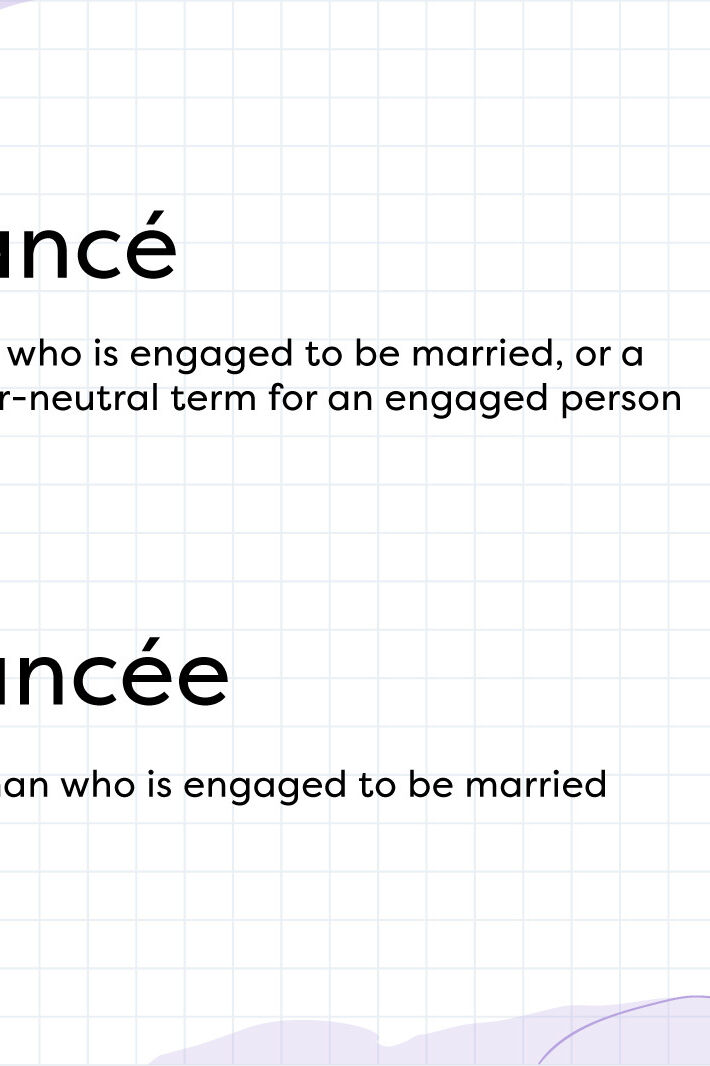
Difference Between Fiancé and Fiancée Differences Explained
[ Daily Mail] CPS officials said Ferguson is planning to get married and is moving to the suburbs with her fiancé. [ Chicago Tribune] Let's Review In French, feminine and masculine forms of nouns are integrated into pronunciation and spelling.

Fiancée or Fiancé How to Use Each Properly INK Blog
August 11, 2022 By Anthony R. Garcia These are the same word, in its masculine and feminine forms. A fiancé is a man who is engaged to be married, and a fiancée is a woman engaged to be married. This difference in the word endings (the extra "e") is from French grammar, as these are French words, adopted into English.

Q&A Fiancé vs fiancée Australian Writers’ Centre blog
What's the difference between the two? Though gender-neutral language is increasingly popular in English, words borrowed from French often distinguish between males and females. A fiancé is man who is engaged to be married. One way that French words specify gender is with their endings.
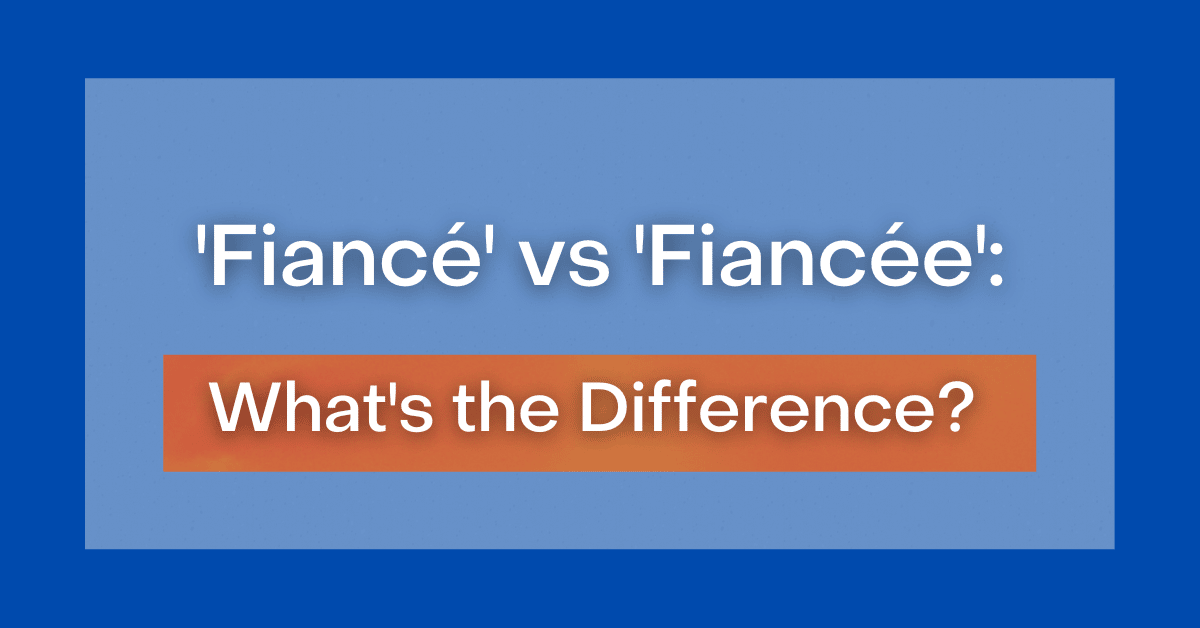
‘Fiancé' vs 'Fiancée' What's the Difference?
What is the Difference Between Fiancé and Fiancée? In this post, I will outline the differences between these two words, fiancé vs. fiancée. I will go over their spelling, their pronunciations, and, at the end, I will give you a trick to remember the difference. After reading this post, you shouldn't even again wonder, "Is it fiancée or fiancé?"

Fiance vs. Fiancee Key Differences, Pros & Cons, Similarities
Fiancé (for Men) Fiancé, with one E, traditionally refers to an engaged man. However, many modern English speakers use fiancé as gender-neutral language to refer to anyone who is engaged. Fiancée (for Women) Fiancée, with an extra e, refers specifically to an engaged woman.
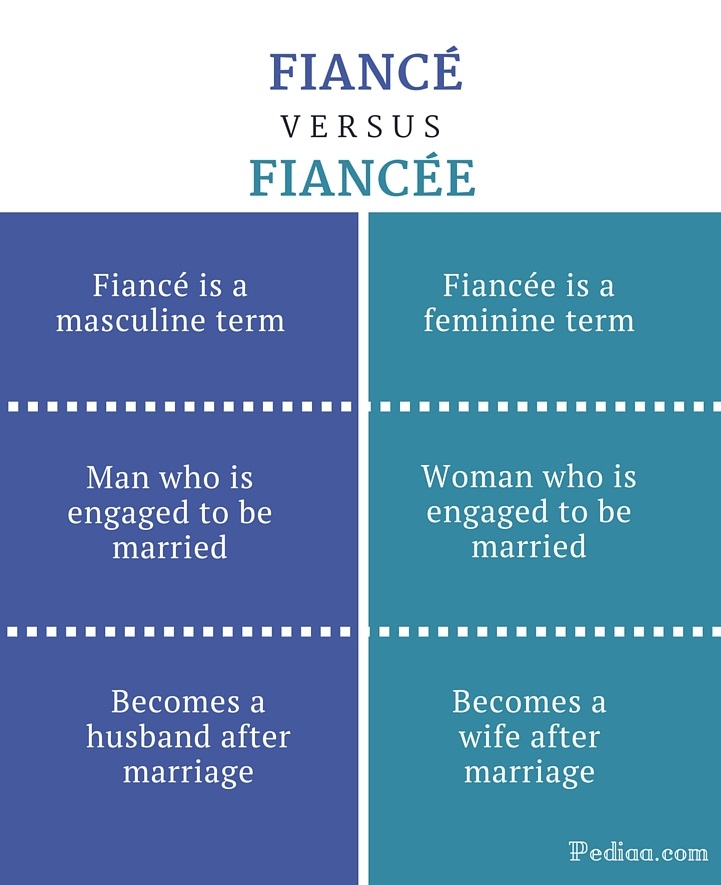
Difference Between Fiancé and Fiancée
Key Differences Between Fiance And Fiancee So there you have it! The difference between fiance and fiancee is simply the gender of the person who is engaged. Fiance vs. Fiancee Similarities Both Fiance and Fiancee are couples Both Fiance and Fiancee are connected to each other Both Fiance and Fiancee are romantic Fiance vs. Fiancee Pros and Cons